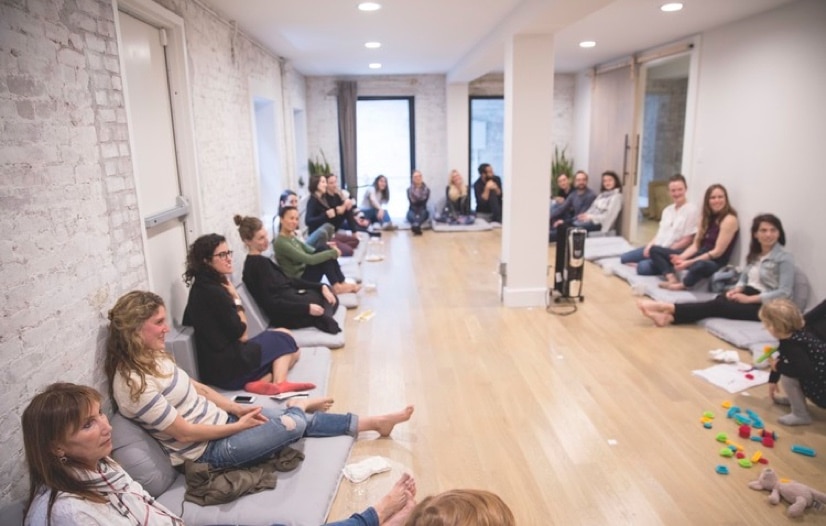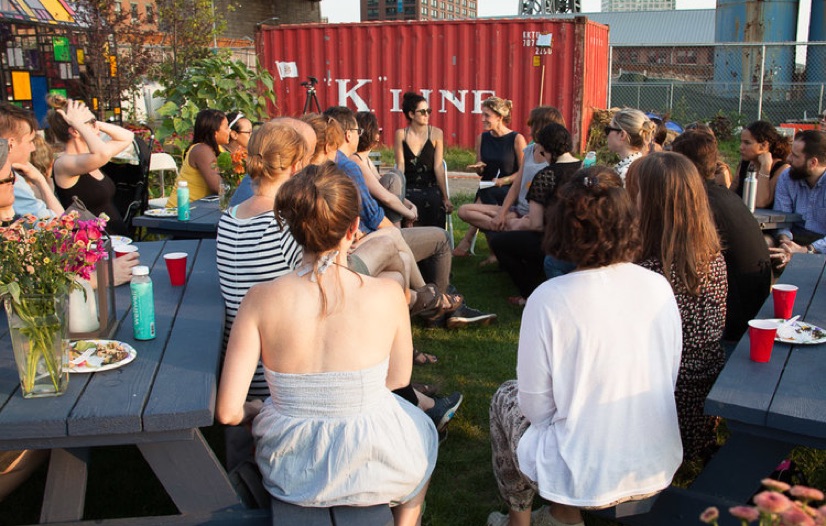March is the month of International Women’s Day and the Jewish holiday of Purim, which features inspiring and fearless feminist role models. We’re celebrating with a series of conversations with Jewish ladies who are building empowering and supportive women-focused communities.
Ashley Spivak is a birth doula, nutritional consultant, and co-founder of Brilliant Bodies, which provides innovative solutions and education to address viable choice in reproductive health and engage people about our bodies and and birth to shift understanding, relevancy, and norms.
Check out all featured women here.


Tell us the story behind the community you’re building.
One thing that’s important to mention is that Brilliant Bodies is not only for women. A lot of the issues we focus on have to do with people who have uteruses, cervixes, and hormones that are associated with those body parts, but we encourage people of all genders to get into the conversation.
I was working in nutrition and had always been really interested in women’s health and sexuality. I had a couple of clients who were pregnant and I started becoming really interested in childbirth and was like, “What the fuck?! Why did no one ever tell me any of this stuff?”
I thought I could get pregnant any time I had sex.
I had no clue that you’re not fertile all the time. The more I learned, the more I realized the brilliance of bodies. It felt like this was something that people should know about and that should be talked about, and it can’t start when we’re already pregnant. I’m really interested in understanding our bodies as a way to have self reliance and autonomy. That’s how Brilliant Bodies came to be. My partner Natalia and I wanted to create a space for people to feel comfortable asking these questions and to learn from each other.
Describe your leadership style.
That’s something I’m trying to figure out. I’m constantly asking myself, how do you hear multiple voices? And I definitely struggle with letting things go. I just keep trying to surround myself with people I can learn from.
Share the most challenging moment you’ve had while building Brilliant Bodies.
So many! When I first started doing doula work, I had to get over that inner monologue of: “Oh My God, people are going to trust me to do this work? What if I mess up? What if I’m awful at this?” The more you do the work, the more you learn that it’s not about you at all, and that, really, we can influence but never control (what a lesson!) and the best thing you can do is show up and listen and do everything you can so that your client feels that every step of the way they’ve made the choices that feel best for them.
What’s the antidote to that feeling? How do you get past it?
I do more of the advocacy work. Workshops, birth gatherings, Cycles + Sex. Getting the information out there to people before they’re pregnant. It’s not just for pregnancy. Doctors aren’t asking about one’s cycle at all. You can learn so much about your internal ecosystem from your period. If you’ve been feeling really tired and fatigued and stressed and your cycle is really short, what does that mean? That might be a piece of the picture.
Share the most empowering instance of women lifting up other women that you’ve witnessed.
There’s an overall movement right now that feels like a huge cultural shift. Women’s circles are forming and becoming mainstream, and there are communities like Dreamers and Doers that are there specifically for women to support other women.
What does being a Jewish woman mean to you?
I’ve been divorced from my religion for a really long time. There’s a big difference between the organized, religious aspect and my heritage and tradition.
The traditions have always been important to me as a way to honor my ancestors and what they fought for and fled for.
Now, for the first time, thanks to Arq and people like Sarah Waxman, I’m starting to get interested in the actual texts and the teachings.
What advice do you have for other women who are looking for supportive communities to build or join?
Just start asking people. There’s so much more going on than we know. There are so many women’s circles and support groups and places where people can go now. Being willing to ask people is a really good place to start. In terms of creating, providing a container is enough. People want to be heard and people want to share. The physical space makes a really big difference. Pay attention to that. Listening and asking questions and sitting back and letting everyone else steer a bit. Being OK with not exactly knowing how it’s going to go.
Favorite Jewish food? Least favorite Jewish food?
My favorite Jewish food is the nuts and the dates on Passover. Haroset. I will eat haroset all year long. Matzo brei with jam. Not savory style. Sweet. It’s an important distinction. Least favorite? Gefilte fish. Can’t get myself to like it. Just not that into it.
Thank you for visiting Arq!
Arq is no longer publishing new content. We hope you'll enjoy our archived posts.